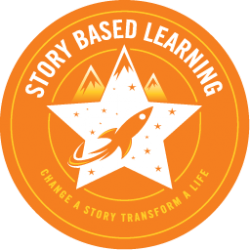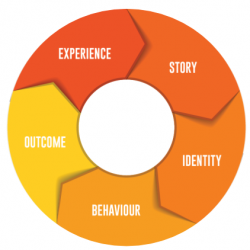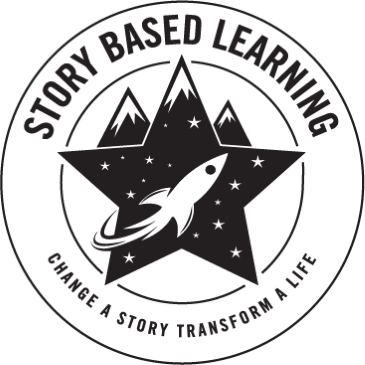About Story-Based Learning

Story-Based Learning is a holistic, learner-centred, transformative approach to learning that intentionally designs experiences and fosters community to encourage the development of character and the transformation of life-stories as students grow their competency and discover their calling to serve the world.
Why the emphasis on story?
Humans are story-based creatures. As students grow, they form stories about themselves, others and the world. They also construct stories about their past, present and future. Together these stories form a student’s life-story or identity. When there is tension between these stories students struggle, yet when there is alignment students have the opportunity to thrive and can learn to their full potential.
What role do strengths play?
In order to be able to make life-giving choices to enhance their life-story, students must develop the strengths and virtues of the head, heart and hands. Humans are spiritual, intellectual and moral beings who feel, think and act according to their life-story. The only way to foster holistic transformation is to help learners cultivate their strengths through shared experiences of struggle and success.
What role does relationships and community play?
Learners make choices about the stories they align their lives with, and the strengths they develop, from the narratives available to them in their community. Healthy and positive relationships and connections are critical to identity and character development and can be either supported or thwarted by the surrounding environment of the learner.
How important is the learning environment?
Every learner is different and has a unique path towards transformation. In order to appreciate the diversity of every learning community and ensure optimal student agency, Story-Based Learning emphasises nine-types of learners. Every learning experience and environment should be designed to differentiate and personalise learning and growth for the optimal development of identity, character and competency.
What theory undergirds the paradigm?
Story-Based Learning builds on a wide range of robust and innovative learning approaches, including: transformative learning, design thinking, experiential learning, communities of practice, growth mindset, zone of proximal development and scaffolding, positive psychology, rites of passage, attachment theory, narrative therapy and, most notably, narrative coaching.

What is the human transformation process?
Humans process every experience or instance of change and development into a story. This story becomes part of their identity. Identity then leads to certain behaviours and these behaviours result in certain outcomes. To enhance the learning outcomes of students it is not enough to seek to modify behaviour, we need to design new experiences so that new stories and a new identity can emerge.
How does it work from K-12?
From Kinder to Year 12, students are taken on a story-based learning journey. Each year is designed with a series of developmentally targeted units that begin with Entry Events and culminate in Mountain Top experiences. As learners progress through each learning adventure, they traverse through struggle and grow their strengths and come out on top of the mountain with their life-story transformed, ready to be launched out into their calling to serve the world.
How is it connected to other learning paradigms and models?
Story-Based Learning emphasises identity (story) and character (strengths) transformation and can be matched to other learning approaches that emphasise knowledge, skill and competency acquisition. Approaches like play-based learning, inquiry-based learning, project-based learning, blended-learning and even direct instruction can all be connected with Story-Based Learning to create a powerful frame for holistic learning and development.
